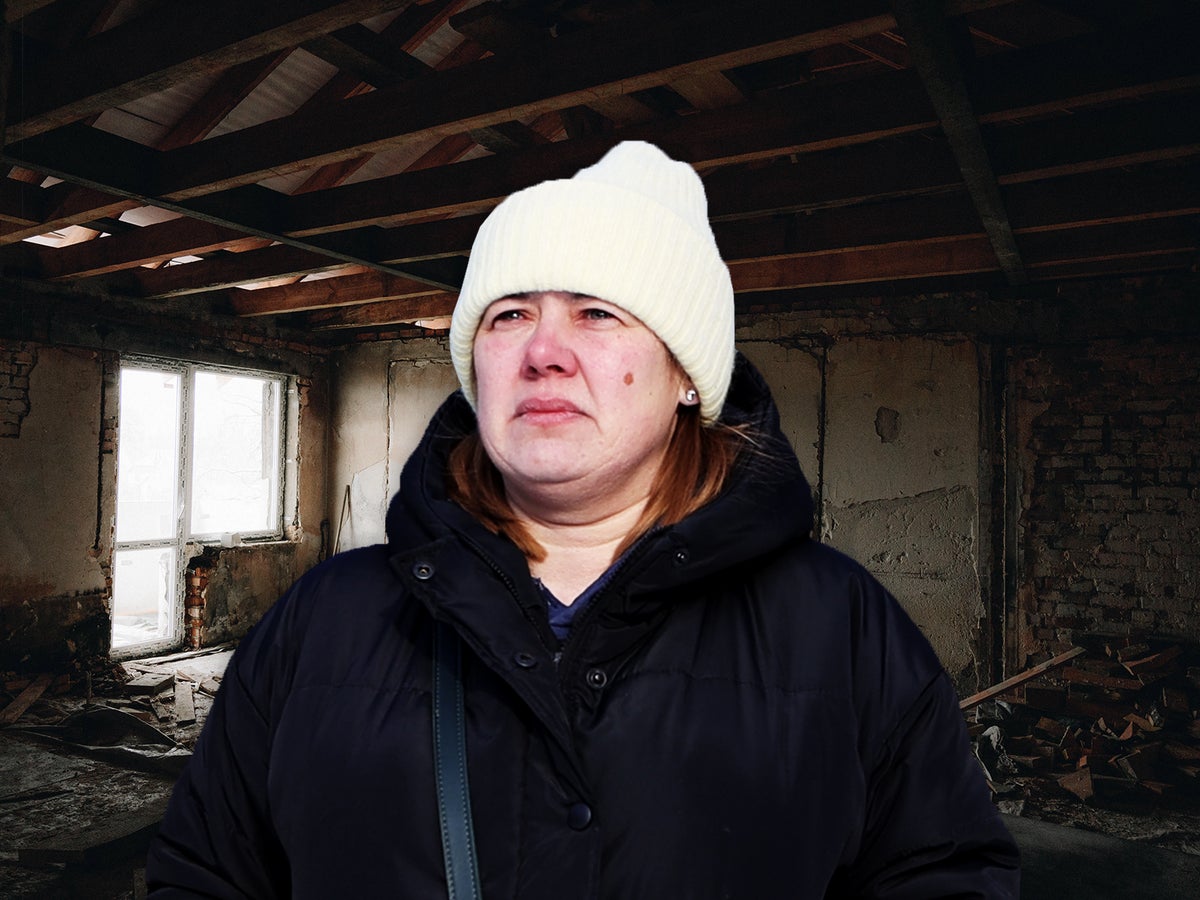
The rockets came first, as Russian troops advanced on Irpin in the days that followed the invasion of Ukraine last February.
The small town was a prime target on the road to Kyiv, the capital city Vladimir Putin’s forces sought to capture early in the conflict, and was one of the first settlements to be subjected to ruthless bombardment at the hands of Moscow’s newly mobilised army.
Artillery fire and missile strikes reduced much of the town to rubble as civilians fled their homes en masse, with Ukrainian troops taking their place and exchanging gunfire with Russians on the burning streets.
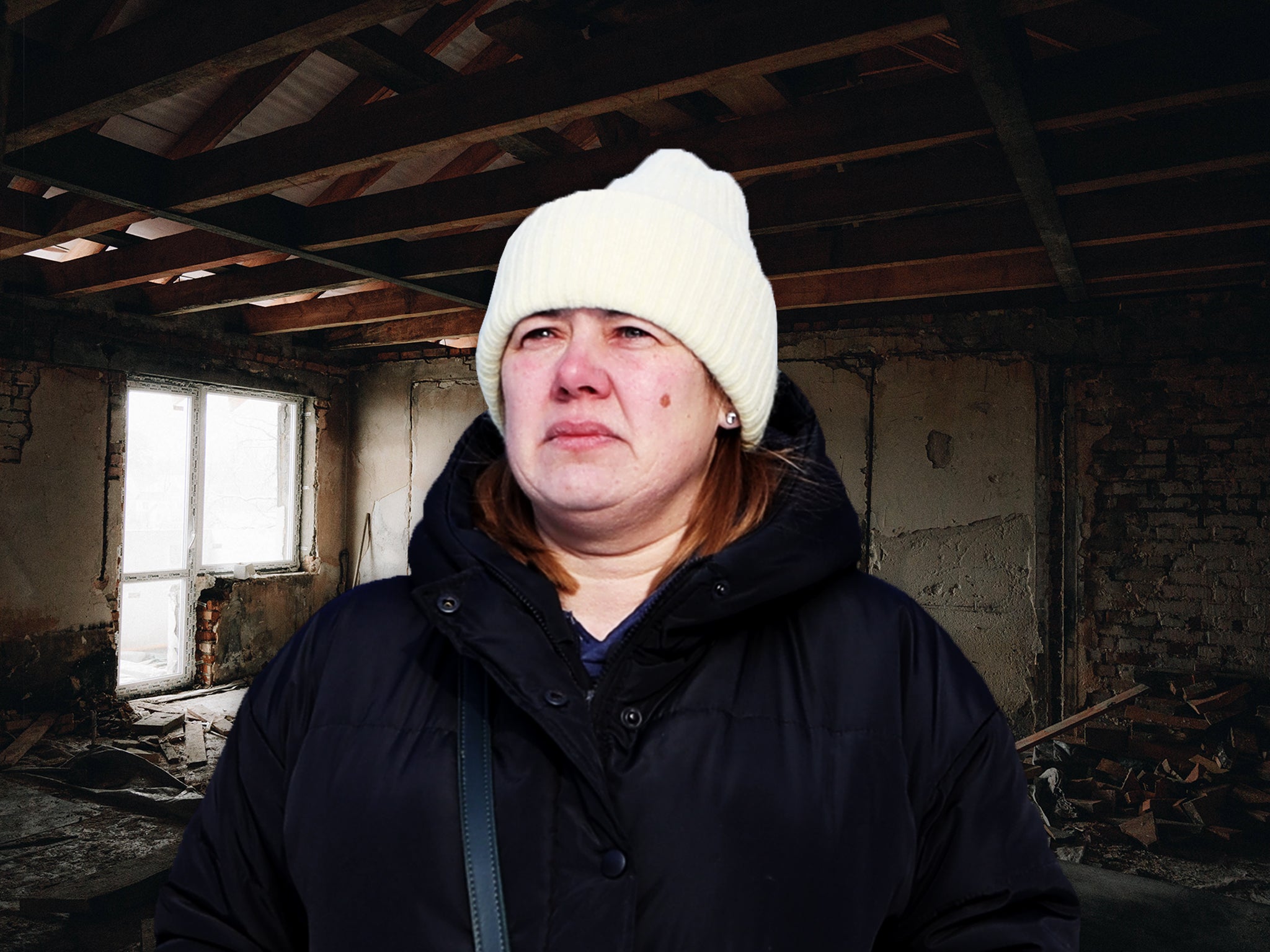
Tanks rolled into Irpin and prowled around the town to secure the area as part of a plan to encircle Kyiv. Looking for a place to pitch up as the first month of the invasion came to an end on 23 March, a tank with a group of soldiers in tow smashed its way into a gated community.
Olena Mykulska lived there.
She has returned with her partner and two children in the months since, but says she cannot hope to stay as Russian soldiers have laid waste to their building.
Olena and her family fled in the mad rush to leave Irpin weeks earlier. What she knows of the assault on her home comes from contact with neighbours who stayed behind – all of whom are now dead – and a community effort to piece together what happened there.
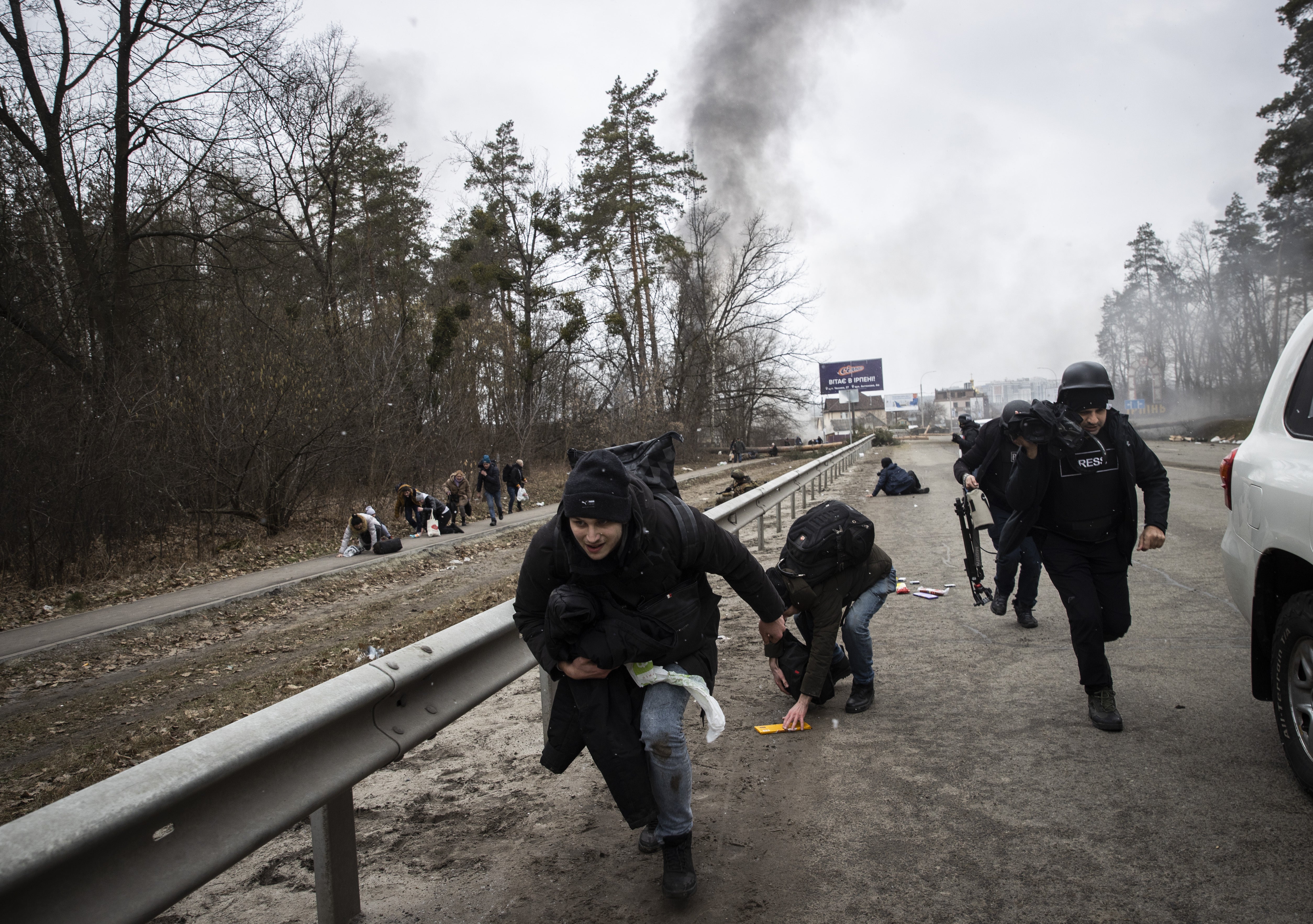
Speaking to The Independent through a translator, Olena says: “When the Russian troops entered our residential compound with their tank, they stopped it right in between the buildings as if they were hiding.
“The tank fired incendiary shots at our apartments randomly. This left the blocks with varying levels of damage: some apartments were burnt down completely, some were more or less intact.
“The soldiers broke in to the apartments, taking any items they could make use of, and the rest they just threw out of the windows.
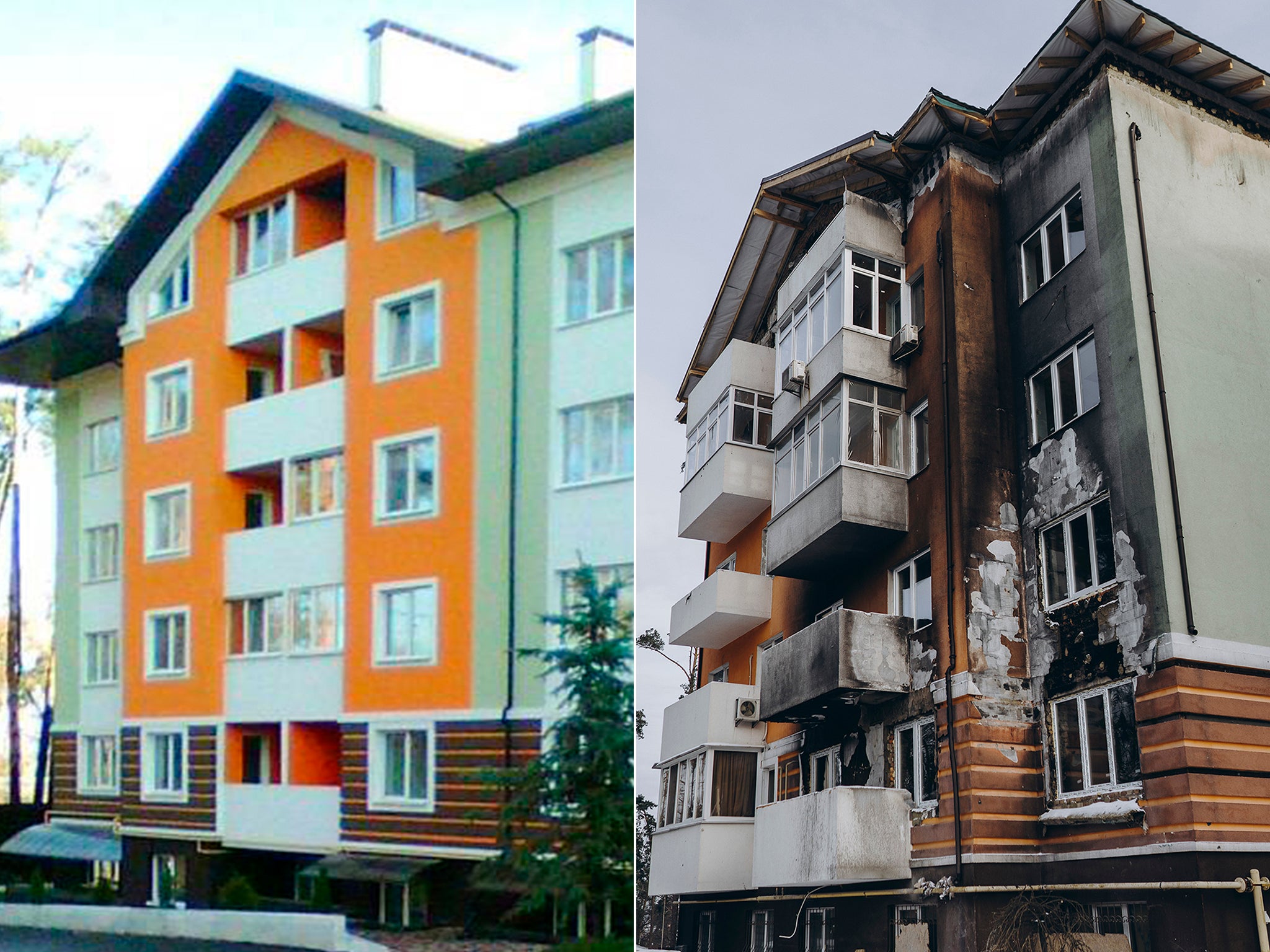
“In the yard, we had a very beautiful garden, with trees, bushes and a children’s playground. They chopped the trees down for firewood, and then razed the bushes and the children’s playground with their tanks. I personally have the impression that their goal was simply to destroy everything they saw.”
Olena says she tried to convince her next-door neighbour to leave, but he refused as he had already fled Luhansk when the separatist conflict broke out in 2014.
“On the day when the house was shot, only three people stayed in the block,” she says. “They were all taken for interrogation and eventually they were executed. No one knows for sure why.”
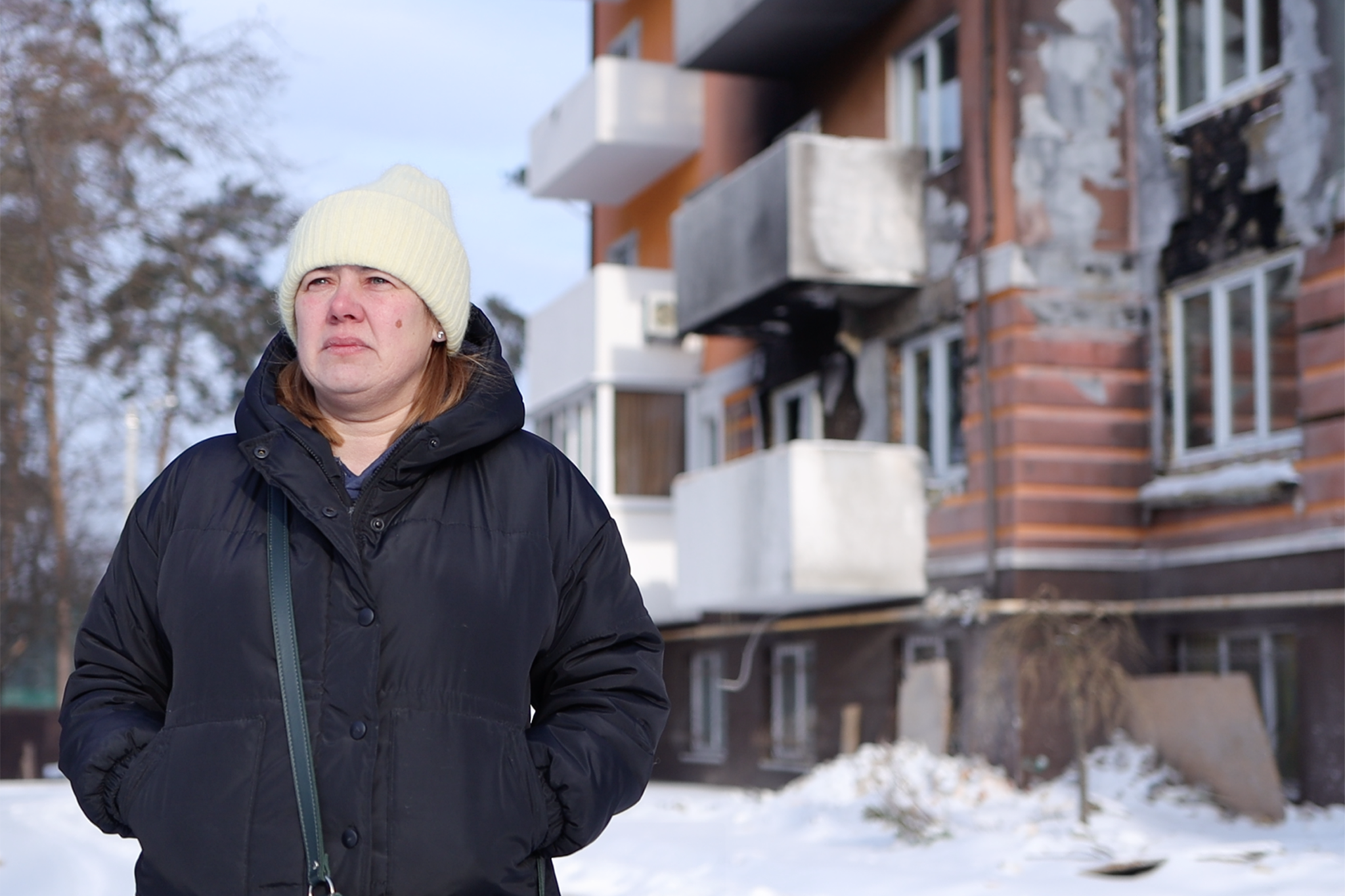
Irpin did not become the go-to example for those reporting Russian atrocities, unlike the neighbouring town of Bucha, where the West was given an early glimpse into the brutality of Putin’s soldiers. But independent investigators have found civilian corpses bearing signs of torture in both towns.
A report by the Organisation for Security and Cooperation in Europe detailed how Russian troops had killed eight civilians, including two children, as they fled Irpin in a car. Ukrainian human rights commissioners reported that two dead children, whose bodies bore signs of rape and torture, were found in the town.
Olena and her family stayed away until Ukrainian forces recaptured Irpin in late March last year, as Russia was forced to turn away from Kyiv and reassemble in the eastern and southern parts of the country.
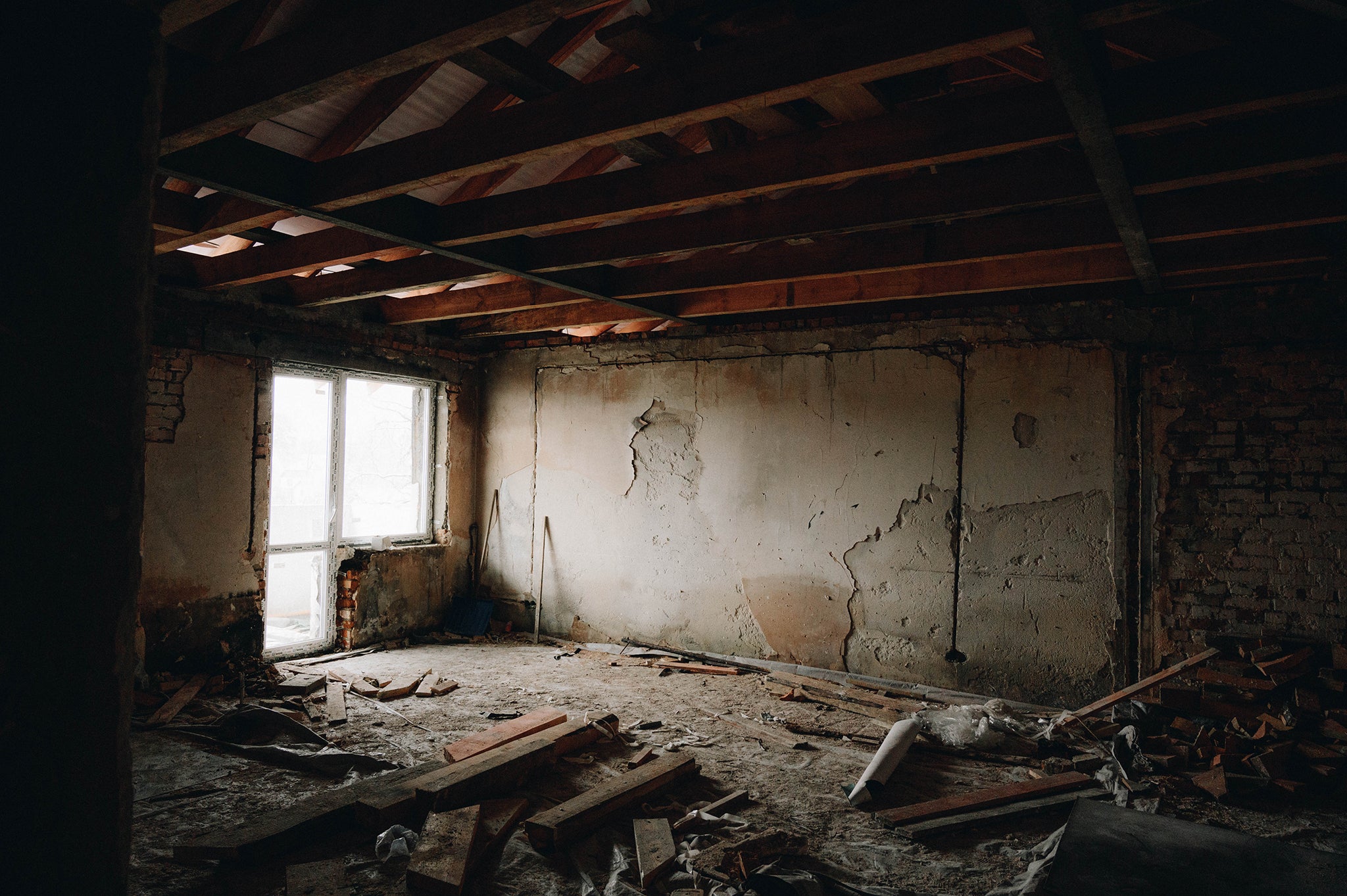
They were not able to return to their home, though they tried to fix the roof, and have been living in rented accommodation with Olena’s sister’s family and their mother ever since.
“Since the attack, we have knocked on many doors to get help,” Olena says.
Eventually, they came across United24, a state-backed charity that is working across Ukraine to restore and rebuild residential buildings destroyed in the war. The two buildings in Olena’s complex were put on the list for the first phase of the charity’s programme, which began in January.
Some 27,000 buildings have been damaged in the Kyiv region alone since the Russian invasion began, according to Ukrainian estimates. Officials say most of them are residential. Ukrainians have also suffered as a consequence of the assault by Russian forces on the country’s energy infrastructure ahead of the winter.
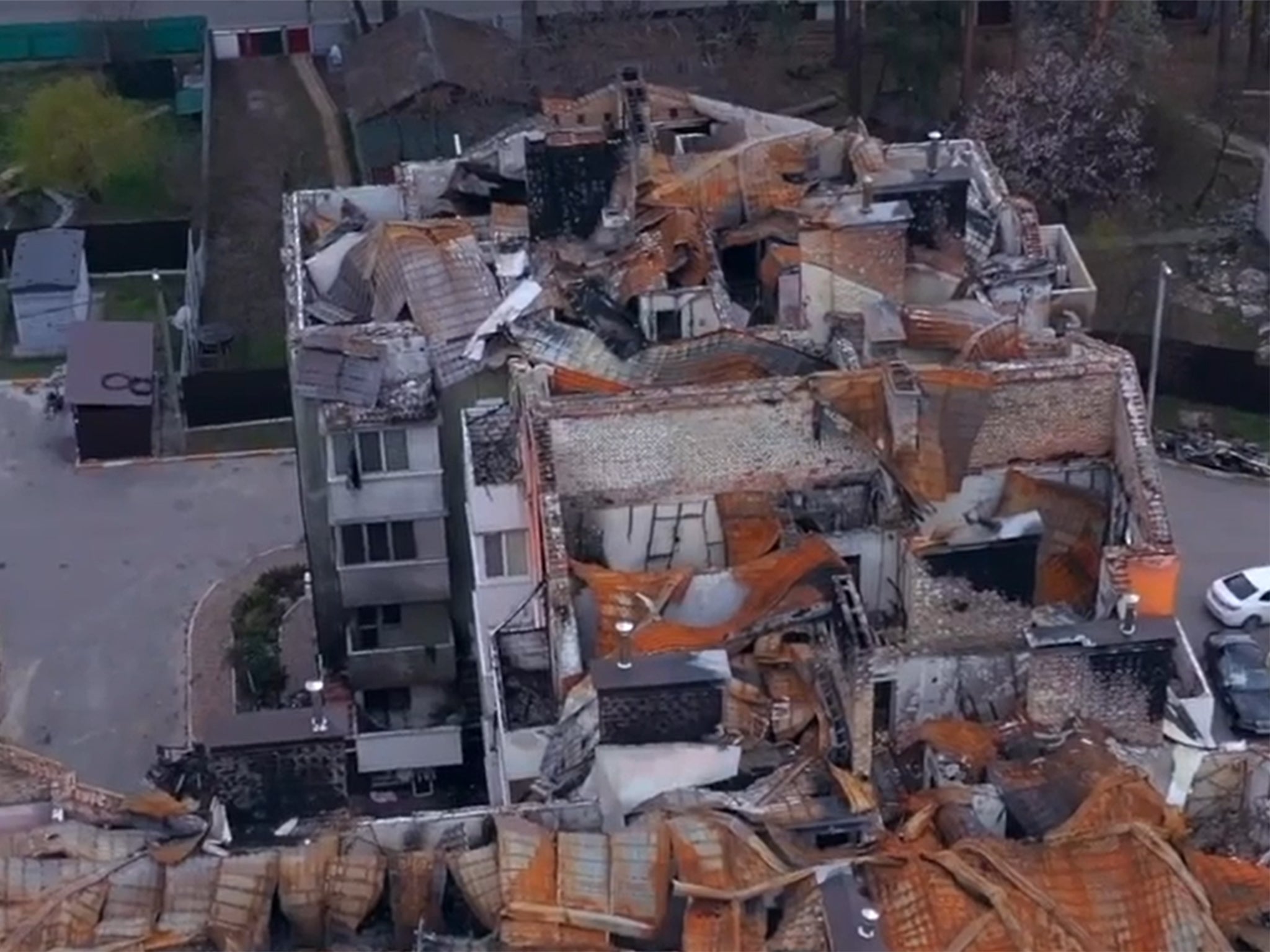
Estimates put the total cost of restoration above £100bn. Just 18 buildings will cost around £16m, which is coming from donors around the world, United24 says. The charity says 4,237 Ukrainians will be rehoused in the first phase, while there are plans to expand the programme.
Olena says: “On behalf of myself and my community, I would like to express gratitude for all the people around the world who feel our pain and make donations.
“Maybe someone decided not to buy a cup of coffee, not to buy a new iPhone, and instead donate to this platform – I want them all to know that the people you are helping need this help, and I express my immense gratitude for the global support.”
Soon her family will have a new home, but Olena is finding it hard to move on, given how they lost the old one. The war plays on her mind often. She says she has no respect for the behaviour of Moscow’s troops, but feels sympathy for ordinary Russians.
She says: “If the Russian people could hear me, I would tell them that they have to fight too, but not against us. As we fought for our independence, they must fight for their independence and not for the interests of one single person.”
Click here for more information on the United24 scheme







